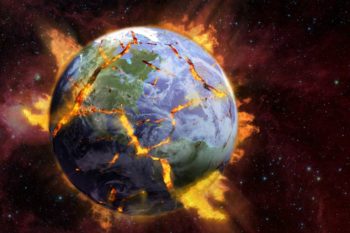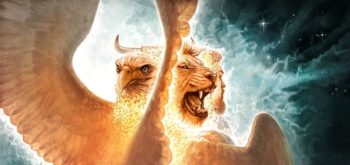Theophanies and Suffering in Christian Fantasy
 I have a confession to make. Iâm always a little scared to portray God in my books. I mean, I do it anyway, but itâs frightening. I tend to feel a âprickleâ on the back of my neck especially when Iâm writing a fictional dialogue for God in any of his three persons (so cheeky). Careful, the voice in my head says, Heâs watching, and what you âmakeâ Him say matters. Mess it up and ZAP! After all, one does not just misrepresent God and get away with it. And yet, showing the character of God through writing is necessary. So, he is active and personal in my booksâportrayed through no metaphor or abstract conceptâshowing up in all three persons of the Trinity. This poses a problem, however. How can there be a sense of urgency or danger when the omnipotent God of the universe (and beyond) is a main character in a story? And why, for that matter, would an omnipotent God allow his heroes to suffer when he could easily fix their dilemmas? Here we stumble on the reason itâs worth the risk to show God to the world through fantasy. Those questions are the same many level at God.
I have a confession to make. Iâm always a little scared to portray God in my books. I mean, I do it anyway, but itâs frightening. I tend to feel a âprickleâ on the back of my neck especially when Iâm writing a fictional dialogue for God in any of his three persons (so cheeky). Careful, the voice in my head says, Heâs watching, and what you âmakeâ Him say matters. Mess it up and ZAP! After all, one does not just misrepresent God and get away with it. And yet, showing the character of God through writing is necessary. So, he is active and personal in my booksâportrayed through no metaphor or abstract conceptâshowing up in all three persons of the Trinity. This poses a problem, however. How can there be a sense of urgency or danger when the omnipotent God of the universe (and beyond) is a main character in a story? And why, for that matter, would an omnipotent God allow his heroes to suffer when he could easily fix their dilemmas? Here we stumble on the reason itâs worth the risk to show God to the world through fantasy. Those questions are the same many level at God.
How can a loving, omnipotent God allow good people to suffer?
Itâs been a mainstay of skeptics since—well, shoot—since the beginning of time. Forget the skeptics; itâs been a weapon of the Enemyâs since the beginning. One could even interpret Satanâs question, âDid God really say, ‘You must not eat of any tree in the gardenâ?â as âIf God was loving and good, would he really keep you from that? A loving God wouldnât keep you from enlightenment, would he?â
In the third book in my series, Daniel and the Serpentâs Abyss (buy a dozen copies on Amazon please) this topic is explored through the story of Raylin. Raylin is a supporting character who is currently under the possessing power of her sword: the Voidblade. Itâs a black, ugly weapon with the ability to suck in the souls of vanquished foes and grant its wielder their power. She is warned from the start of the series that the dark spirits within the blade will eventually possess her. Her desire for revenge against the Enemy is so strong, however, that she can resist its influence, and that its power will be enoughâno matter the Voidblade was created by him in the first place.
So, we see a predictable dilemma: a human making destructive choices out of ignorance, anger, and revenge because she doesnât want to heed Godâs warning. The result? Bondage, despair, insanity, and utter dependence upon God to provide salvation. Then, he swoops in and undoes all her bad choices and their consequences, right? Not quite. At this juncture in the series, the only way for Raylin to be truly saved is for Daniel and his friends to somehow get Raylin to the bottom of the Serpentâs Abyss, where they can use the Abyssal Staff to permanently free her from the power of the spirits possessing her. Even that wonât work, though, unless she willingly relinquishes the Voidblade and repents of her sin. Oh, did I mention the Abyss is where Satan (in his true form) dwells? Itâs a harrowing and painful experience, but necessary. Why? A quick internet search for verses on repentance gives us one of the answers. Repentance brings freedom from sin, and repentance is something we must choose. Whether God has manifested himself in blazing glory (ĂĄ la Paul), a sermon, or that still, small voice in our minds, he calls us to repentance and waits for our reply rather than bulldozing over us. Ezekiel and Peter are helpful.
Ezekiel 18:30-32 ESV
âTherefore I will judge ⌠every one according to his ways, declares the Lord GOD. Repent and turn from all your transgressions, lest iniquity be your ruin. Cast away from you all the transgressions …. For I have no pleasure in the death of anyone ⌠so turn, and live.â
2 Peter 3:9 ESV
The Lord ⌠is patient toward you, not wishing that any should perish, but that all should reach repentance.
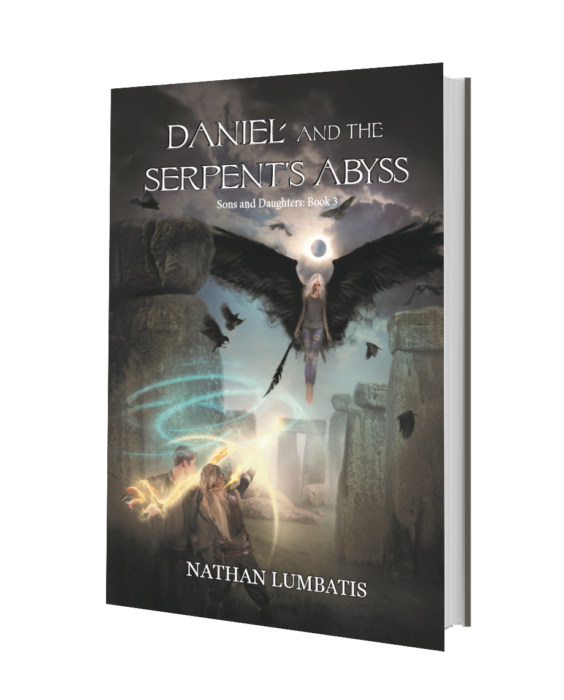 All of this is to say, when I portray God as omnipotent, omniscient, and terrifying-but-loving, he must also be portrayed as working salvation by patiently allowing his children to bumble their way through mistakes, pain, and ruin to (hopefully) find freedom through repentance. He is not a tyrant of hearts and wills.
All of this is to say, when I portray God as omnipotent, omniscient, and terrifying-but-loving, he must also be portrayed as working salvation by patiently allowing his children to bumble their way through mistakes, pain, and ruin to (hopefully) find freedom through repentance. He is not a tyrant of hearts and wills.
To illustrate this, here is an excerpt from Daniel and the Serpentâs Abyss. The Triune God has arrived in the Abyss at the moment of Raylinâs opportunity to repent. Iâve shortened it from how it appears in the book for brevity sake, but I hope it will still exemplify the point of this article.
âWhat do you want with me?â the Serpent and his incarnations demanded in one unified, whining voice. âHave you come to torment me before my time? Will the Father also descend from his Mountain to cast me into the Lake of Fire?â All the Enemyâs forms took one enormous breath. âIt is not my TIME! What do you want with me?â they screamed again.
The Son raised his hand, and the Enemy fell silent, except for the constant scraping and scratching noise of his myriad scales, claws, and horns rasping against the ground.
He turned to Raylin. âI am Alpha and Omega. First and Last. Beginning âŚâ he paused, and at that moment, the veil between them and reality drew apart. The Fatherâs Mountain appeared behind the Son. â⌠and End,â the Father said in his cosmically deep voice.
The Abyss shook violently.Raylin lifted her eyes and stared up at the Mountain. âI donât understand.â Her voice was flat and confused. âHe fears you. He bows.â She limply gestured toward the Enemy, shaking her head. âWhy donât you destroy him now? If your power is this great, why did you let me suffer? Why didnât you rescue me?â Tears streamed down Raylinâs face, and her voice fell to a shaky whimper. âI was scared.â
Daniel didnât have to guess at Raylinâs meaning. He knew she now spoke out of her childhood traumaâthe terror of being sold as a slave and exposed to atrocities he could only imagine. Even with never knowing his biological parents, Daniel had never experienced even half of what she went through. He let his eyes drift to his biological mother, then to his mom and dad, all still praying fervently for his protection. If he had ever thought his life hard, one glance at Raylinâs blew that notion right out of the water. Heâd been sheltered and protected. Sheâd been exposed to the worst of reality.
âSome are called to suffer, Raylin,â the Son said, still standing at the base of the Mountain. âAmong the Three, mine was a path of sorrow.â
Images flashed through all their minds. A life of ridicule and poverty. Foreknowledge of an inescapable, painful death. The Enemy in various guises, haunting every step like a nagging ghost, kindling every demeaning comment. Unjust accusation. Torture. A Roman cross soaked in blood. Descent into the darkness of death and hell. And, worst of all: separation from the Father.
But then âŚ
Light. Life. Inheritance. Redemption of countless peopleâa vast sea of children pulled out of darkness and into a world of light, an innumerable host of men and women flooding the plains of Heaven. All because of the suffering, death, and resurrection of the Son. In one burst of understanding, Daniel saw the terrible things experienced by the Son as unworthy of comparison with his great work of redemption.
âYour suffering was not purposeless, either. Nor will it be in vain. Through it, you will find compassion for others who suffer, and you have won immense strength. Repent of your anger, Raylin. Sin no more. Come to me and find rest.â
When we read or write stories of the omnipotent God, fantastical or otherwise, remember that his character is not impugned by the suffering brought on by the Enemyâs will and our sin. His omnipotence and goodness do not require him to filter out all the consequences of sin in the world, as much as we wish they did. As the Son explains to Raylin, because of that physical and spiritual suffering we become aware that we are on the path to eternal destruction. As the child knows the pain of her stove-burned hand means she must pull it back or else lose it to fire, so too we (and the characters in our stories) rightly interpret our trials and suffering as evidence of our need to run to a redeeming God. I will, foolishly or bravely (you decide), continue to write stories where God shows up unapologetically omnipotent, and yet allow his creatures to struggle. Itâs my hope that, by doing so, readers will have a clearer perspective on the meaning of their own trials, and the deceptive attacks of the Enemy will fall on deaf ears.
































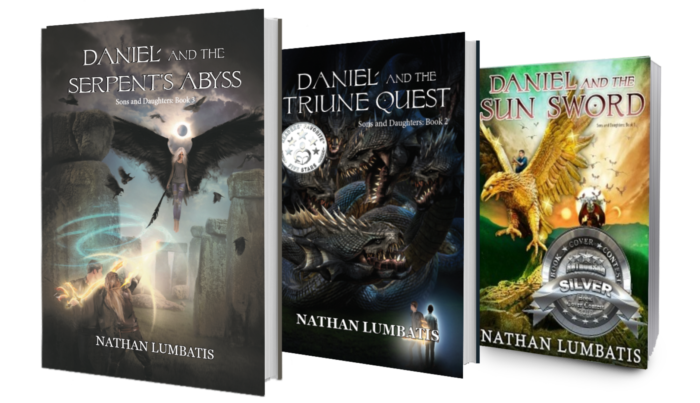
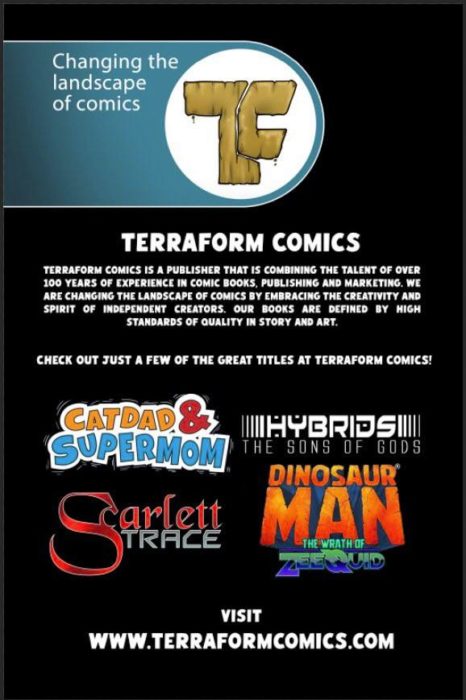
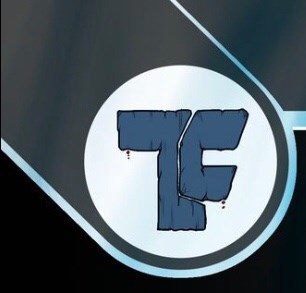
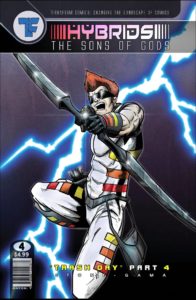
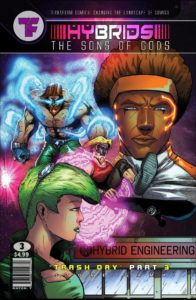

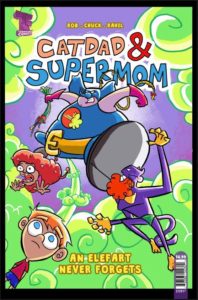
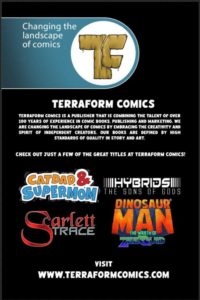
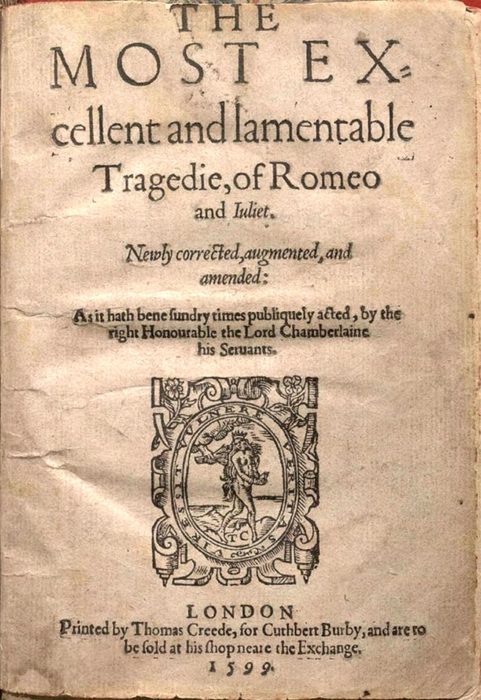
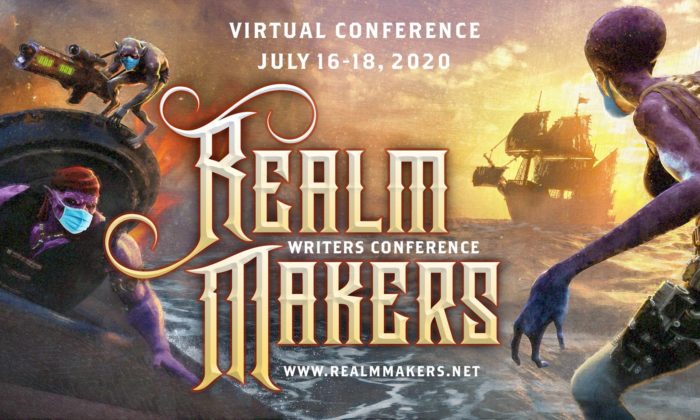
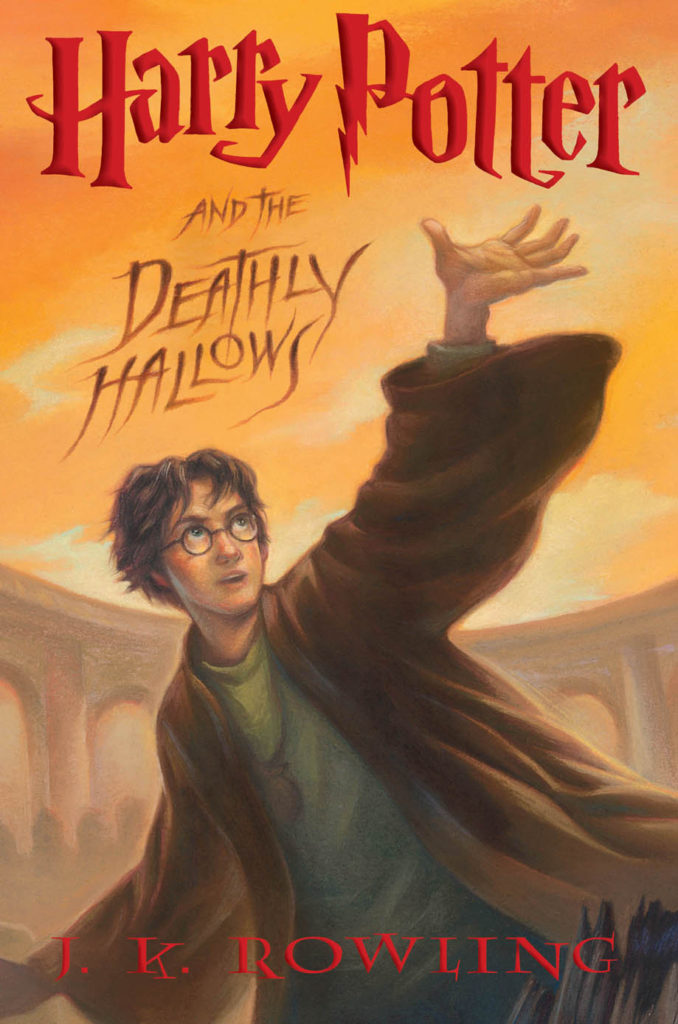
 So in many ways, Rowling’s essay is filled with facts, data, personal experience, and a logical approach consistent with her staunch feminist beliefs.
So in many ways, Rowling’s essay is filled with facts, data, personal experience, and a logical approach consistent with her staunch feminist beliefs.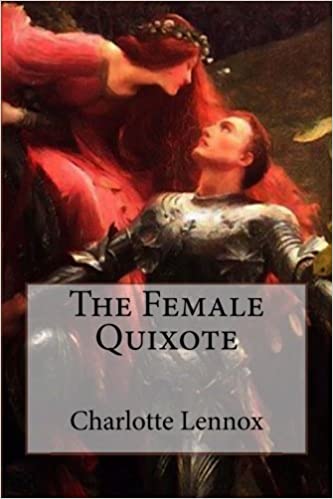

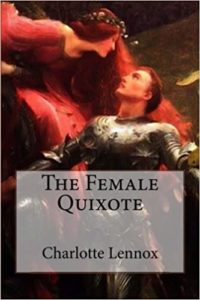
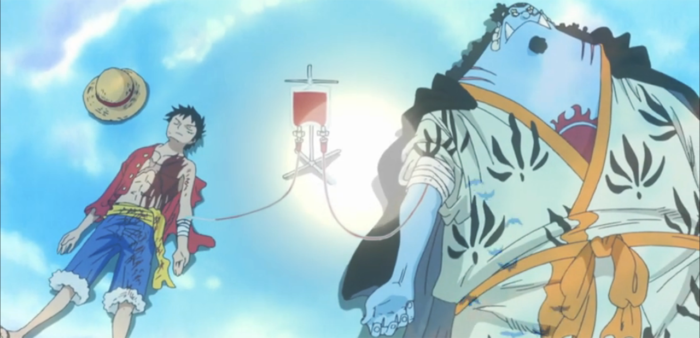
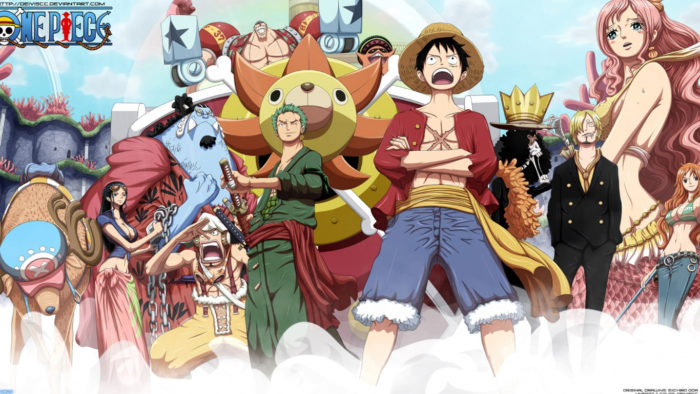
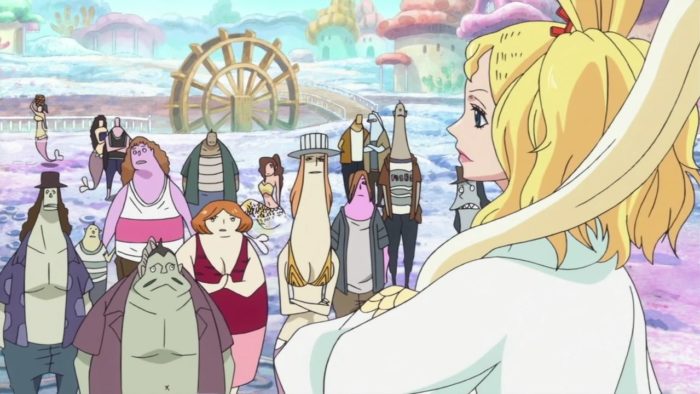 Otohime became convinced that what kept the humans and the fishmen apart was distance. Humans lived on land. Fishmen lived ten thousand feet beneath the sea. Humans seldom saw fishmen, unless they were either attackers or slaves. Fishmen seldom saw humans, unless it was pirates who came to raid them and capture slaves. Otohime thought that if the fishmen, who could breathe both air and water, were to move to an island on the surface of the sea, the two races might come to know each other and their old hatreds could be put to rest.
Otohime became convinced that what kept the humans and the fishmen apart was distance. Humans lived on land. Fishmen lived ten thousand feet beneath the sea. Humans seldom saw fishmen, unless they were either attackers or slaves. Fishmen seldom saw humans, unless it was pirates who came to raid them and capture slaves. Otohime thought that if the fishmen, who could breathe both air and water, were to move to an island on the surface of the sea, the two races might come to know each other and their old hatreds could be put to rest.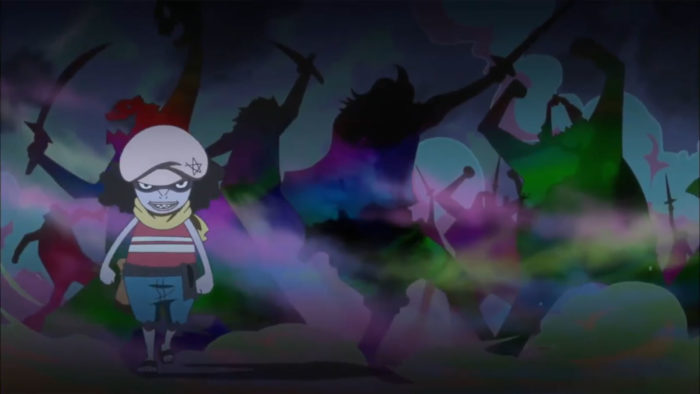
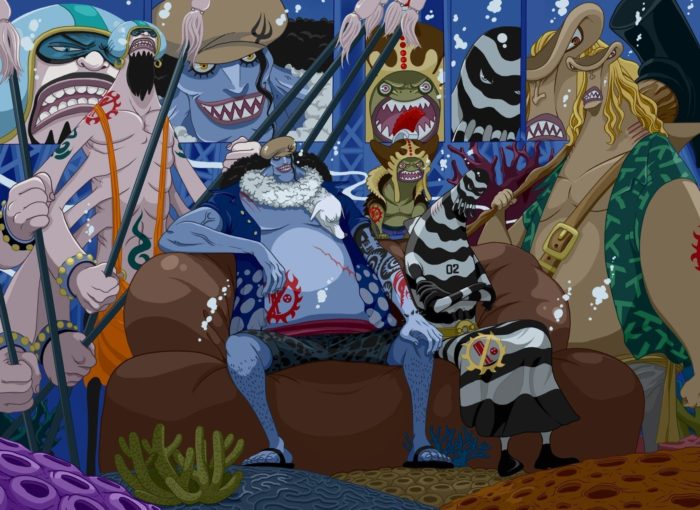
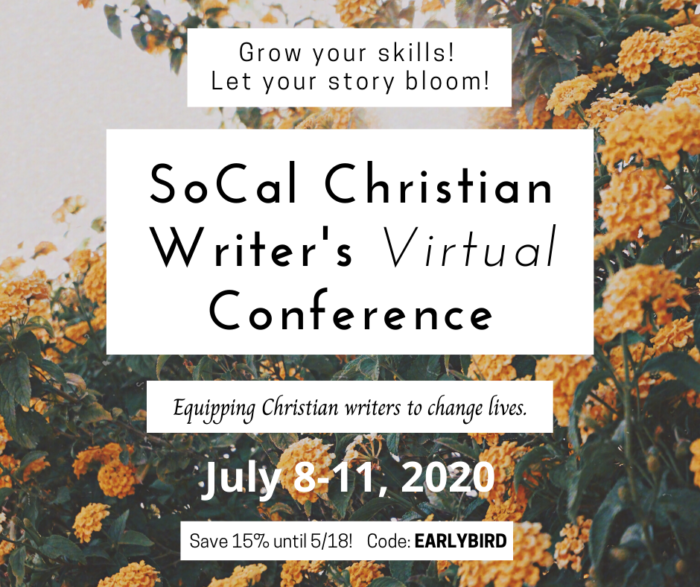
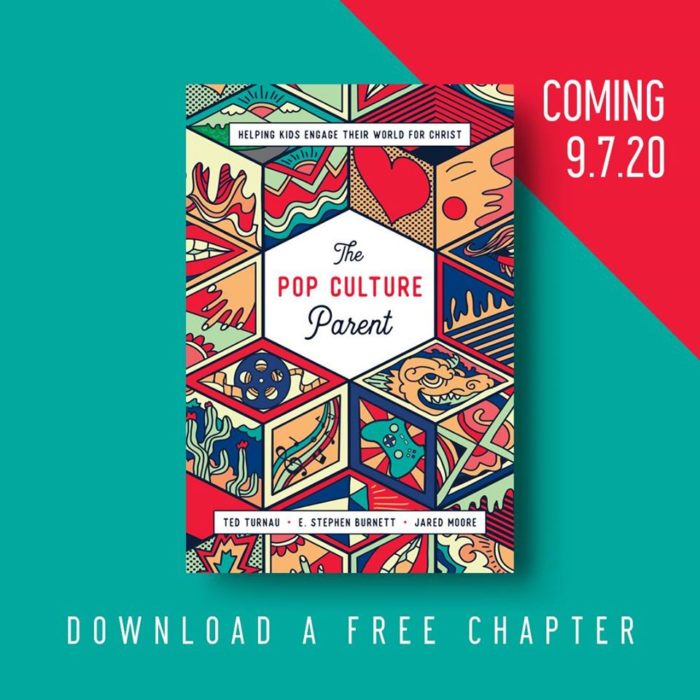

 But here’s the thing. If I were writing a review of this book, I would feel like I was being overly critical to point out these slips. I mean, did any of those matter in the long run? No. Will people who are not basketball fans, or residents of SoCal, even notice? Probably not. Does the day of the week really matter? Not really. Then what’s the big deal?
But here’s the thing. If I were writing a review of this book, I would feel like I was being overly critical to point out these slips. I mean, did any of those matter in the long run? No. Will people who are not basketball fans, or residents of SoCal, even notice? Probably not. Does the day of the week really matter? Not really. Then what’s the big deal?

